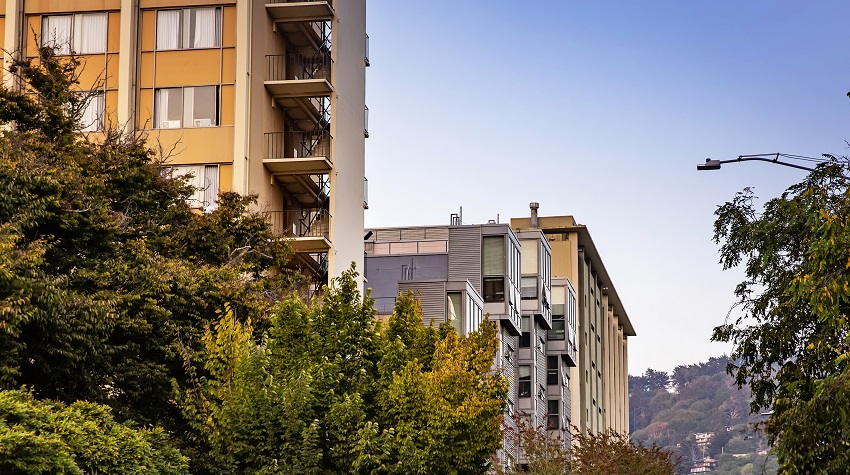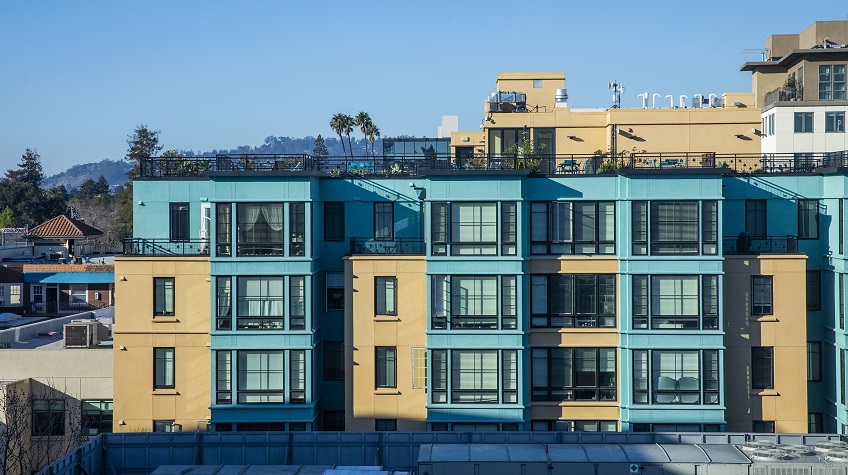Good Cause & Other Local Requirements
Evictions are governed primarily by state law, but Berkeley’s Rent Ordinance imposes additional requirements when tenants have “good cause for eviction” protections.
Tenants and landlords should check with our office to see if the unit is covered by the eviction protections in the Rent Ordinance. If the unit is covered, Berkeley landlords must follow both state and local law in order to evict.
Evictions are complex, and a landlord’s failure to follow certain procedures may result in the tenant prevailing in the case and possibly being awarded substantial damages. We strongly urge landlords and tenants to get legal advice before filing an eviction action or contesting an eviction attempt. Rent Board housing counselors can help you understand your rights and responsibilities, but are prohibited from providing legal advice regarding eviction proceedings.
Local requirements (BMC 13.76.130 B, C and D)
The Ordinance imposes the following notice requirements in addition to any state law requirements:
- State one or more of the good causes for eviction listed below. (Regulation 1310.)
- Allege compliance with BMC 13.76.080 (registration) for all covered and partially covered units on the property (compliance means that all registration fees are paid and all registration forms are completed and filed) and with BMC 13.76.110 (lawful rent levels). (Regulation 1311.)
- Allege substantial compliance with the implied warranty of habitability (no serious repair problems) for all covered units on the property.
The landlord must also:
- Provide tenants with a Notice of Tenant Protection Ordinance at the start of any tenancy beginning after April 2017. This notice must also be included with any eviction notice, and failure to do so is a defense to the eviction.
- File with the Rent Stabilization Board a copy of the notice to quit or notice of termination, and a copy of the summons and complaint, within ten days of the date they are given to the tenant. (Regulation 1312.)
Good cause is required for eviction (BMC 13.76.130)
The “good cause for eviction” protections of the Ordinance apply to most rental units in Berkeley, including all units with rent ceiling controls, “new construction” units (those constructed after 1980), single-family residences, units owned or leased by the Berkeley Housing Authority, and units rented to federal Section 8 participants.
“Good cause” is any one of the following:
- Failure to pay rent: The tenant fails to pay rent to which the landlord is legally entitled, after receiving a notice to pay or move out within a period not less than three days (also known as a 3-Day Notice to Pay or Quit).
- Lease violation: After receiving a written request to stop the violation, the tenant continues to substantially violate a material term of the original rental agreement or a new provision that was mutually and voluntarily agreed to. However, a landlord may not evict a tenant for violating a subletting prohibition if (1) the landlord has unreasonably withheld consent to the subtenancy, (2) the tenant still lives in the unit, and (3) the number of total occupants does not exceed the number originally allowed by the rental agreement or the Board's regulations, whichever is greater.
- Substantial damage: The tenant willfully causes or allows substantial damage to the rental unit to occur, and refuses to pay or make sufficient repairs after being asked in writing to do so.
- Failure to sign substantially identical lease: On the expiration of a fixed-term lease, the tenant refuses to sign a new lease that is substantially identical to the expired one.
- Disturbing peace and quiet: The tenant continues to disturb the peace and quiet of other occupants after receiving a written request to stop.
- Refusing to allow landlord entry for certain purposes: The tenant, after receiving a written request to stop denying access, continues to refuse the landlord access to the rental unit during normal business hours for reasons governed by state law. Please see California Civil Code Section 1954.
- Substantial repairs necessary: The landlord must bring the unit into compliance with the Housing Code by making substantial repairs that cannot be made while the tenant lives there. (See additional requirements below.)
- Demolition: The landlord has received a permit to demolish the unit/property.
- Owner or qualified relative move-in: The owner of at least a 50 percent recorded interest in the property (or their spouse, parent, or child) wishes to occupy the rental unit as their principal residence, and there is or was, for 90 days before the tenant was given notice to vacate, no vacant comparable unit available on any property owned by the landlord in Berkeley. See our Owner or Qualified Relative Move-in Evictions page for more information.
- Owner or lessor reoccupying unit as agreed upon in the lease or sublease: An owner or lessor wishes to move back into a rented or subleased unit as permitted in the rental agreement with the current tenant(s).
- Refusal to leave temporary housing: A tenant refuses to vacate temporary housing offered by the landlord after repairs to the tenant's prior unit have been completed.
- Illegal activity: A tenant engages in unlawful activity on the premises.
The following are NOT good cause to evict
- The sale of property
- The expiration of a rental agreement
- A change in the federal Section 8 status of a unit
- Foreclosure on a property
Despite what owners, lenders, real estate agents, or successor (new) owners may say, tenants do not have to leave the property just because any of the above happens.
Property conversion to condominiums or tenancies-in-common
The City's ordinance governing conversions of property to condominiums and tenancies-in-common (TICs) includes protections for sitting tenants. The good cause for eviction provisions of the Rent Ordinance will apply, so most tenants in converted properties will not be required to move. An owner planning to convert a rental unit to a condominium must notify the tenant of their rights to:
- Continue to rent the unit, even if converted
- Purchase the unit, if they wish
A tenant in a unit converted to a TIC may be evicted only if an owner of a 50 percent or more interest, or the owner's qualifying relative, will occupy the unit.
Substantial repairs
Before giving a tenant notice to leave to perform substantial repairs, the owner must get all necessary permits to do the repairs. If, from the time notice is given until the tenant leaves the unit, the owner has other vacant units in Berkeley, one of these units must be offered to the tenant to occupy temporarily or permanently. The City of Berkeley’s Relocation Ordinance may also apply. The Relocation Ordinance, which is administered by the City’s Health, Housing and Community Services Department, requires owners to provide financial assistance to tenants who are temporarily displaced while building and housing code-related repairs are made. Finally, the tenant must be given the option to reoccupy the rental unit at the same rent (plus any authorized increases) once the repairs have been completed.



